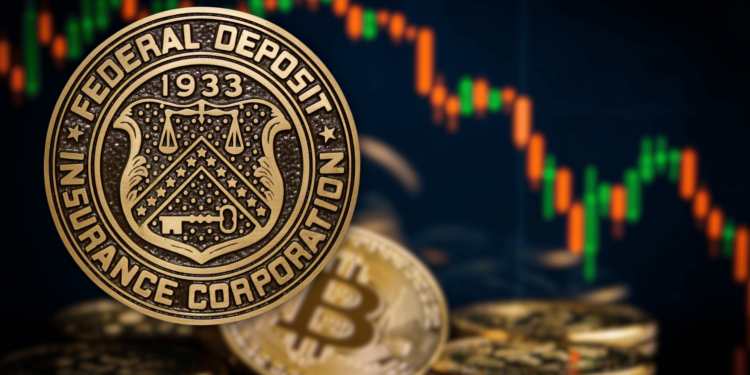- The FDIC is reportedly planning to revise guidelines, allowing banks to engage more freely in crypto activities.
- Bank of America CEO Brian Moynihan stated that banks would quickly adopt crypto if regulatory barriers were lifted.
- Standard Chartered projects Bitcoin could reach $500,000 by 2028, with improved access and reduced volatility as key drivers.
A significant shift could soon reshape the U.S. cryptocurrency market. Reports suggest that the Federal Deposit Insurance Corporation (FDIC) is planning to revise its guidelines, potentially allowing banks to engage more freely in crypto activities.
This move reflects the broader changes underway under the pro-crypto Trump administration, which has prioritized a complete overhaul of policies toward digital assets. If implemented, these new guidelines could redefine how financial institutions interact with the sector.
FDIC Eyes Crypto Integration for Banks
According to a Barron’s report, the FDIC may allow banks to operate within the crypto sector without needing prior regulatory approval. This would mark a major shift, aligning with efforts by other agencies like the SEC to modernize the country’s approach to digital assets.
Bank of America CEO Brian Moynihan recently hinted at the potential impact of such changes. “If the rules come in and make it something you can actually do business with, the banking system will come in hard on the transaction side,” he stated, likening crypto to “just another form of payment.”

A Catalyst for Bitcoin’s Growth
Experts believe that easier access to crypto through banks could accelerate Bitcoin’s rise. Standard Chartered projects that Bitcoin could hit $500,000 by 2028, driven by increased access and reduced volatility. These regulatory adjustments could play a crucial role in propelling its value on the global stage.
As government agencies continue to revise their stance on digital assets, the integration of crypto into traditional banking systems could spark a new era for both institutional and retail adoption in the U.S. market.














